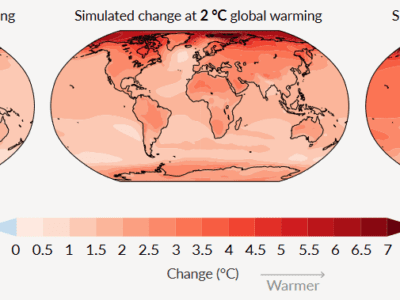Engaging India on Climate
Via the Times of India, along comes the news that the state of Himachal Pradesh, just south of Kashmir, says that it will present a plan to become a carbon-neutral state. I’ll believe it when I see it, although the state seems to have a reasonable business strategy: reforest thousands of acres and sell carbon offset credits through the Clean Development Mechanism (which gives carbon emitters the opportunity to purchase offset credits in developing countries.).
Even with implementation issues, and the well-documented corruption problems with CDM, it is good news that someone in India is moving ahead forcefully on climate. It also points to a significant problem with the standard scholarly outlook on international climate issues, which holds that 1) climate is best addressed in one fell swoop through a binding international agreement to avoid carbon leakage; and 2) this agreement should be based on binding emissions caps through a cap-and-trade system.
First, along with Gujarat’s recent issuance of a solar power policy, it is clear that in India at least, the action is occurring in the states, not at the federal level. While this might seem odd, because climate policy often entails concentrated costs and diffuse benefits, it makes sense politically in India, because of a changing political culture, where regionally-based parties are gaining strength. These parties will resist fiats from Delhi, but will have fewer problems with initiatives from the bottom up.
Second, it casts doubt on the possibility of persuading developing countries such as India and China to go immediately with binding caps. Instead, the task should be to find co-benefits of climate-friendly policies to attract developing country partners. In HP, this involves using the CDM, but the general notion is to try to use development assistance to reduce emissions. Similarly, a carbon tax might be a fiscally attractive option for Indian states, most of which are in the midst of a public finance crisis. Technical assistance to jumpstart energy efficiency is another key point.
Climate change scholars, particularly the economists, love to talk about international climate change architecture. That might work well for economists, but for the rest of us it will resemble more like a Rube Goldberg contraption. I hope that that’s good enough. It might have to be.
Cross-posted at the Reality-Based Community: www.samefacts.com
Reader Comments
One Reply to “Engaging India on Climate”
Comments are closed.






well articulated information….
dailyearthnews.wordpress.com